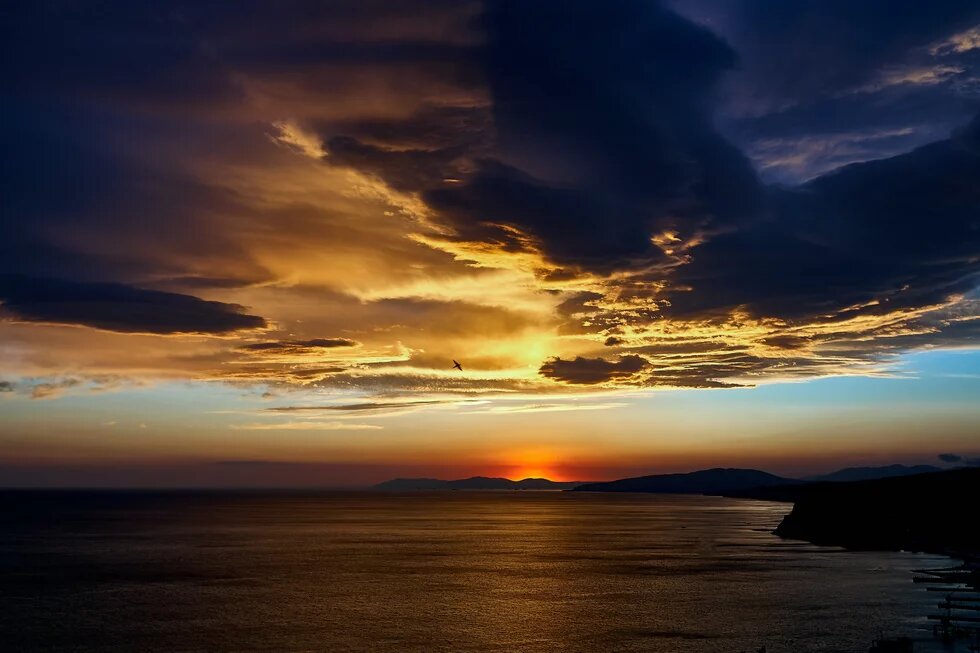Russia’s large-scale war against Ukraine does not only reflect the threat which is coming from Russia for European security but also how China and Russia are interlinked with each other to challenge the current global order. The result is growing strategic competition of both with the West. The Black Sea region has become a key area where the new European security order will be negotiated in this context.

In a 1994 article for Foreign Affairs, former US national security advisor Zbigniew Brzezisnki famously argued that “without Ukraine, Russia ceases to be an empire.” His analysis is no less valid today.
At the time, Brzezinski was arguing against the United States pressuring Ukraine to give up its nuclear weapons. It seems reasonable to say that there would be no war in Ukraine today if the country had not done so under the terms of the flawed Budapest Memorandum.
It is striking just how little has changed in Russia’s strategic thinking since 1994. Brzezinski noted a “widespread feeling in Moscow that Ukrainian independence is an abnormality as well as a threat to Russia’s standing as a global power.” Three decades ago, he saw the Kremlin using its economic leverage in the “hope of destabilizing [Ukraine] to the point that a sizable portion of the population will begin to clamor for a closer connection with Moscow.”
The parallels between then and now are striking. Even if all historical analogies are imperfect in some way, there is a measure of continuity in Russia’s strategic thinking vis-à-vis Ukraine and the Black Sea region more generally. Therefore, one should count on both remaining central targets for Moscow’s defense and foreign policy establishment. And – even if it is not comparable to China in terms of political, economic, and military capability to project power – Russia has sufficient resources, a powerful narrative of grievance, and enough soft and hard power to play the role of spoiler in the region.
Today the whole span of NATO’s eastern flank is undergoing tectonic shifts as a result of Russia’s full-scale invasion of Ukraine. Within this, the Black Sea region remains threatened by Russia, but China also challenges US and EU interests there. The context for these developments is strategic competition.
War Scenarios
At the northern end of NATO’s eastern flank, with Finland and eventually Sweden joining the alliance, the Baltic Sea is becoming a “NATO lake” and the surrounding countries are well fortified and reasonably secure. At the southern end, by contrast, Russian aggression has transformed the Black Sea region into a hotspot of insecurity and extreme volatility. This started in 2014 with its illegal annexation of Crimea, which it has since militarized, effectively creating an anti-access/area denial bubble. The consequences have been manifold. As long as Crimea remains occupied and militarized by Russia, Ukraine will have serious difficulties in rebuilding a viable economy. Kyiv depends on the ability to export its agricultural and industrial products from Mariupol and Odesa, and both port cities are within firing range of Crimea. The United States and its NATO allies have frequently underestimated the strategic challenge there. By building the Kerch bridge to Crimea and controlling the Azov Sea, Russia has effectively been able to block Ukraine’s export of industrial goods, and it has since destroyed Mariupol wholesale during its 2022 siege.
Crimea is not the only problem, however. Should Ukraine regain its full territorial integrity or most of it, it is unlikely that a bruised and bloodied Russia will become suddenly docile and accommodating. Ukraine will have to build up its military capacities very quickly and it will need serious security commitments from the West. The most important actor in this will have to be the United States, as a nuclear power and as the key member of NATO. The necessary security guarantee for Ukraine can be realized through NATO membership or through a strong and ironclad bilateral security guarantee from Washington.
But, even if Ukraine receives either of these, Russia will almost certainly continue to act as spoiler in the Black Sea region, working to prevent countries like Armenia, Georgia, and Moldova from developing independent foreign policies. (Moscow seems willing to negotiate and make compromises with Azerbaijan.) NATO members Bulgaria and Turkey will be subjected to manipulation, intimidation, and blackmail through their dependency on Russian energy. A comprehensive Russian strategy can still be expected to try to pull – inch by inch – parts of the Black Sea region away from the West and into a Russian sphere of influence. NATO’s southeastern flank will have a long way to go to reach the stability of its northeastern one.
Russia at Home
Ukraine has always been a central piece of the puzzle in the Kremlin’s hegemonic designs. But, independent of the war’s outcome, Russia is likely to remain a threat to Eastern Europe and the transatlantic space. It increasingly vies with China for influence in Central Asia, where Kyrgyzstan in particular is taking a hard turn against the West. In the Western Balkans, Russia continues to have political and strategic influence through disinformation, influence operations, and commercial and energy ties. As Russia loses in Ukraine, President Vladimir Putin is adapting by insisting that the war is part of a larger effort against the West. Despite a weaker hand on the battlefield, Moscow will employ a variety of methods to drag out the fighting. Russians are being drafted for what the Kremlin describes as defending their country from an existential threat posed by decadent liberal democracies led by the United States. The parallels to Stalin’s World War II narratives are hard to overlook.
More generally, Stalinism has been on the rise in Russia, fostered by Putin. According to the Levada Center, the share of Russians who agreed that “Stalin was a great leader” rose from 28 percent in 2016 to 56 percent in 2021. The Russian analyst Andrei Kolesnikov is among those who argue that Putin increasingly resembles and imitates Stalin. He points out how Putin gained complete control over the country’s elites, promotes imperial nationalism, is turning Russia into a “full-fledged, personal autocracy,” and increasingly rules by fear.
Levada Center polls also show approval for Putin hovering around 80 percent since the 2022 full-scale invasion of Ukraine – but polling data must be taken with a pinch of salt under such a repressive regime. The space for public debate is now virtually nonexistent. Russia has banned Twitter, Facebook, and over a dozen independent media organizations. Many who oppose the war - or perhaps simply do not want to fight - are fleeing the country. Estimates run between 500,000 and one million so far. Those who disagree with Putin are either silent or silenced. Opposition politician Vladimir Kara-Murza’s recent sentence of 25 years for speaking out against the war – the harshest delivered since the full-scale invasion – was intended as a deterrent for would-be dissidents. The recent sentencing of a former police officer to seven years in prison for candid comments about the war he made in what he thought was a private phone conversation is another vivid illustration of the regime vengefulness.
To advance Putin’s imperialist ambitions, the authorities are drafting young men from ethnic regions, who come often from poorer and uneducated communities. The whole of Russian society is by now being dragged into the war, but the chances for a Buryat or a Tuvan to die in in Ukraine are still 8 - 10 times higher than for an ethnic Russian. While it is difficult to know for certain, these may be the people most inclined to resist Moscow and opt for a form of self-government should the Russian Federation to begin to disintegrate. There is a 19th century precedent for this. As the American analyst Frederick Starr writes, Russia’s defeat in the Crimean war of 1853–1856 and how the conflict caused its economy to falter gave rise to domestic unrest. At the time, the tsarist regime’s success depended on its ability “to solve the age-old conundrum of apportioning power between the center and the periphery, and between state and society.” If it is defeated in today’s war, including losing Crimea, Russia might find itself in a crisis that could lead to similar tensions with ethnic regions demanding self-government.
We must contemplate the possibility that Russia will emerge from the war with different borders and with largely self-governing ethnic regions and other jurisdictions within them. Even if today the dependency of the regions on the center is not identical to that in the 19th century and the security apparatus is a different kettle of fish, the Crimean War precedent is a useful reminder of the fragility of Russia’s internal stability and a warning about the consequences a Russian defeat in Ukraine could have on the state itself.
Another useful historical analogy comes from a more recent time: the dissolution of the Soviet Union in 1991. The historian Vladislav Zubok argues in his book Collapse: The Fall of the Soviet Union that the key to the Soviet Union losing the Cold War was in Central and Eastern Europe, where the likes of Czechoslovakia, Hungary, and Poland broke free from Russia and became democracies clamoring to join the Western institutions. Putin’s personal memories of the fall of the Berlin Wall are surely what prompted him to declare the fall of the Soviet Union as the 20th century’s “greatest geopolitical catastrophe.” Ukraine’s democratization and Euromaidan of 2014 were no doubt key to his decision to invade the country in 2014. A free and independent Ukraine is a dangerous model that can inspire Russians to struggle for democracy at home and a threat to the paternalistic, authoritarian regime in Moscow. Russia’s full-scale invasion and its systematic attacks and atrocities committed against Ukrainian civilians have been sobering and clarifying for the West’s most ardent Putinversteher, even if there are some in the Global South who remain fond of Putin as a leader in the cause of anti-Westernism.
Russia’s Allies
Russia’s full-scale invasion of Ukraine has left the Kremlin with a small number of allies. Its top one remains Belarus, whose increasing fusion with the Russian Federation establishes a dangerous precedent for the region. The relationship between the two regimes is one of reciprocal, if unequal, dependence. Belarus’ dictator Alexander Lukashenko would arguably not have remained in power after the stolen 2020 presidential election without the Kremlin’s political support. In exchange, he helped to facilitate the attack on Kyiv in the early weeks of the invasion in 2022. Lukashenko has walked a tight rope. He supports Putin’s war with Belarus’s military bases, hospitals, and intelligence, but he has managed to keep Belarusian troops out of the conflict. To consolidate this tandem’s power, Putin has recently announced the stationing of Russian nuclear weapons on Belarusian territory. Regardless of the war’s outcome, Russia’s nuclear power will remain a source of instability for Eastern Europe and for the transatlantic space.
A major unknown remains Russia’s partnership with China. Weeks before the full-scale invasion, Putin and President Xi Jinping announced a “no limit” partnership, which suggests that China supports Russia’s aggression. Xi has reinforced this partnership through visits to Moscow, even if Beijing has not gone all in on the war, very likely because it does not want to risk being sanctioned by the West. China and Russia have a common interest in seeing the world dividing into spheres of influence. They see themselves in strategic competition with the West and particularly the United States. A rising China will likely try to use Russia as a proxy to do its bidding in Europe. A weakened Russia will try to lean on China for leverage to advance its own interests.
Will the West Need a Containment Strategy for Russia?
Putin has spent years, if not decades, building up the West as Russia’s enemy. With or without him in power, we can expect the Kremlin to maintain this course for the foreseeable future. The West will be left with no other choice than to face up to the threat from Russia. For guidance in this, it has no other historical experience of confronting a major nuclear power than that of the United States’ and NATO’s containment strategy of the Soviet Union.
In this context, the countries in the Black Sea region must identify clearly the distinct threats posed not only by Russia, but also increasingly by China. They must understand where the interests of both of these powers coincide, and how cooperation between them can grow. It is imperative that they develop a comprehensive strategy for the region within the broader Western global one. There is much work to be done for the Black Sea region – it needs history on its side as well as fresh thinking.
This article resulted from a collaboration between the German Council on Foreign Relations (DGAP) and the Heinrich Boell Foundation.
This article first appeared here: www.boell.de


